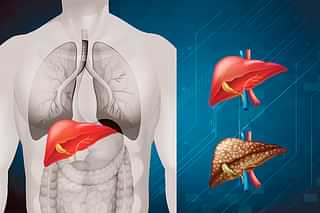WHY DOES AN ADDICTED PERSON DON’T WANT TO TREAT?

Addiction to alcohol wreaks havoc in many spheres of life. It ruins health, relations with the environment and close people, it takes away dreams, career, savings and often leads to death.
People who are unfamiliar with the addict’s way of thinking often cannot understand them.
Why does an addict not want to be treated?
That’s what non-addicted people think. However, sick people think in a different way- addicted. Yes, alcoholism is a disease. “Drunken thinking” allows the alcoholic to draw illogical conclusions.
For example, an addicted person may feel that having trouble at home that he or she can no longer bear is causing him to drink. This is despite the fact that the wife fights precisely because of “the husband’s drunkenness.”
Related article: recovery group topics
The effect of addiction on the body
Much research has already been done to explain the effects of alcohol as a chemical on the human nervous system.
However, not all questions were answered. It has been found that even small doses of alcohol affect the hippocampus. Which is involved in memory and learning processes.
One may wonder whether alcohol-induced learning and memory impairment is related to the failure by drinkers to notice the devastating consequences of drinking alcohol.
Is this enough to answer the question – why do people continue to drink despite such heavy drinking losses? Probably, however, the biological effect of alcohol on the nervous system alone does not explain the whole picture of self-destructive behavior in addiction.
The influence of addiction on the psyche
The operation of psychological mechanisms is also of great importance here. In this article, psychological mechanisms are described in relation to alcohol dependence, but they work in all addictions.
The mechanism responsible for undetected harm from addiction has been called the mechanism of illusion and denial. This mechanism can be compared metaphorically to a huge sheet that tightly covers all damage caused by drinking and allows it to continue.
This sheet is very thick because it is made up of many kinds of smaller mechanisms, such “thick patches” that tightly cover the negative effects of drinking.
Read more: night sweats weed withdrawals
Denial
Denial is one of the defense mechanisms that make up the mechanism of illusion and denial. It is manifested by such statements by addicts. “I feel bad because I caught a cold, not because I drank alcohol yesterday”, “I don’t drink in the den, so I’m not an alcoholic”. “My hands are shaking, because the sugar in my blood is I’m jumping.
Rationalization
We can often meet with the fact that an addicted person drinks because – as he says – “… he has to relax after hard work”, “… he has problems in his marriage, no one would stand it”, “… he had to drink because his boss / an important client put up and it was not right to refuse, etc.
This is a manifestation of another defense mechanism called rationalization – that is, giving a good cause instead of a real one. This mechanism prevents changes in your behavior.
Projection
Projection, on the other hand, means projecting on others the responsibilities and guilt of the addicted person. In its simplest form, it might look like this. “If my wife could understand me at least a little, I certainly wouldn’t be drinking.”
You can see how in such a statement the wife is made responsible for the drinking of an addicted person. Blaming your wife allows you not to take responsibility for your behavior and thus makes you unwilling to change.
Manipulating time
Another mechanism often noticed in addicts is the manipulation of time. An addicted person’s approach to time is different than that of an non-addicted person.
The addicted person believes they can stop using the addictive substance when they choose to, and sometimes do so for a day or two. He treats such short-term abstinence as evidence that he has control over the drug being taken.
Read on
For an addicted person, only what is at the moment counts, the past and the future are less real for him. Time could be measured in seconds for her. This is probably the result of the fact that each substance taken by it gives effects after a few minutes. And addicts cannot bear even the slightest delay in this matter.
The alcoholic, when he drinks, does not think about the future, but only about what is happening at the moment, about feeling happy and relaxed, he cannot postpone them in time.




